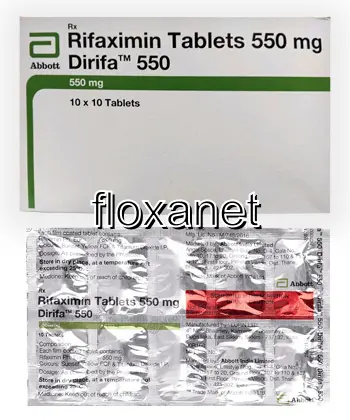| Package | Dosage | Price | Price per Dose | |
|---|---|---|---|---|
| Dosage: 200mg | ||||
| 270 pill | 200mg | €263.22 | €0.98 | |
| 180 pill | 200mg | €192.71 | €1.07 | |
| 120 pill | 200mg | €141.00 | €1.18 | |
| 90 pill | 200mg | €111.63 | €1.25 | |
| 60 pill | 200mg | €81.07 | €1.35 | |
| 30 pill | 200mg | €42.29 | €1.41 | |
| 20 pill | 200mg | €29.37 | €1.47 | |
| 10 pill | 200mg | €16.44 | €1.65 | |
| Dosage: 400mg | ||||
| 270 pill | 400mg | €481.79 | €1.79 | |
| 180 pill | 400mg | €338.43 | €1.88 | |
| 120 pill | 400mg | €232.66 | €1.94 | |
| 90 pill | 400mg | €179.78 | €2.00 | |
| 60 pill | 400mg | €123.38 | €2.06 | |
| 30 pill | 400mg | €63.45 | €2.12 | |
| 20 pill | 400mg | €43.47 | €2.17 | |
| 10 pill | 400mg | €22.32 | €2.23 | |
| Dosage: 550mg | ||||
| 270 pill | 550mg | €571.10 | €2.12 | |
| 180 pill | 550mg | €391.31 | €2.17 | |
| 120 pill | 550mg | €282.02 | €2.35 | |
| 90 pill | 550mg | €222.09 | €2.47 | |
| 60 pill | 550mg | €151.58 | €2.53 | |
| 30 pill | 550mg | €78.72 | €2.62 | |
| 20 pill | 550mg | €55.22 | €2.76 | |
| 10 pill | 550mg | €29.37 | €2.94 | |

Rifaximin Description
Introduction to Rifaximin
Rifaximin is an antibiotic medication that is primarily used to treat various gastrointestinal conditions. It belongs to the class of drugs known as rifamycins, which are derived from rifampin. Rifaximin is known for its effectiveness in targeting bacteria that cause infections and for its unique property of remaining within the gastrointestinal tract, which helps minimize systemic absorption. This characteristic makes it a popular choice for treating infections localized to the gut, reducing the likelihood of systemic side effects.
Uses and Indications
One of the most common uses of Rifaximin is for the treatment of traveler's diarrhea caused by certain bacteria, such as Escherichia coli. It is also prescribed for hepatic encephalopathy, a complication of liver disease, where it helps decrease the production of toxins by intestinal bacteria, thereby reducing the risk of brain function impairment. Additionally, Rifaximin is effective in treating irritable bowel syndrome with diarrhea (IBS-D), providing relief from symptoms like bloating, discomfort, and frequent bowel movements.
How Does Rifaximin Work?
Rifaximin works by inhibiting bacterial RNA synthesis, which ultimately prevents bacterial replication and growth. Its targeted action in the gut means that it acts directly on the bacteria present there without significantly affecting the body's overall microbiota. Because of its ability to stay within the gastrointestinal tract, it offers a potent local antibacterial effect while having minimal systemic absorption. This results in fewer systemic side effects and lower chances of developing antibiotic resistance compared to other antibiotics.
Advantages of Using Rifaximin
Many patients and healthcare providers appreciate Rifaximin for its safety profile. It is generally well-tolerated, with mild side effects in most cases. Its targeted action also means that it causes less disruption to the body's natural flora, which is important in preventing secondary infections or complications. The convenience of a relatively short course of treatment enhances patient compliance. Furthermore, Rifaximin’s effectiveness in specific conditions like hepatic encephalopathy makes it a valuable addition to the therapeutic options for chronic liver disease management.
Possible Side Effects and Precautions
While Rifaximin is considered safe for most, some individuals may experience side effects. Common issues include nausea, dizziness, or mild gastrointestinal discomfort. Allergic reactions are rare but can occur, so any signs of rash, itching, or swelling should prompt medical attention. Patients with a history of allergies to antibiotics should inform their healthcare provider. Despite its low systemic absorption, long-term use should be monitored carefully to prevent the development of resistant bacteria or other complications. It is essential to follow the prescribed dosage and duration of therapy to maximize benefits and minimize risks.
Conclusion
Rifaximin offers a targeted, effective option for treating several gastrointestinal infections and conditions. Its excellent safety profile, combined with its ability to act locally within the gut, makes it suitable for a range of patients. However, as with any antibiotic, proper diagnosis and adherence to treatment guidelines are crucial. Consulting a healthcare professional before starting Rifaximin ensures optimal use and helps prevent potential adverse effects. Its role in managing conditions like hepatic encephalopathy and IBS-D underscores its importance as a versatile medication in gastroenterology.
